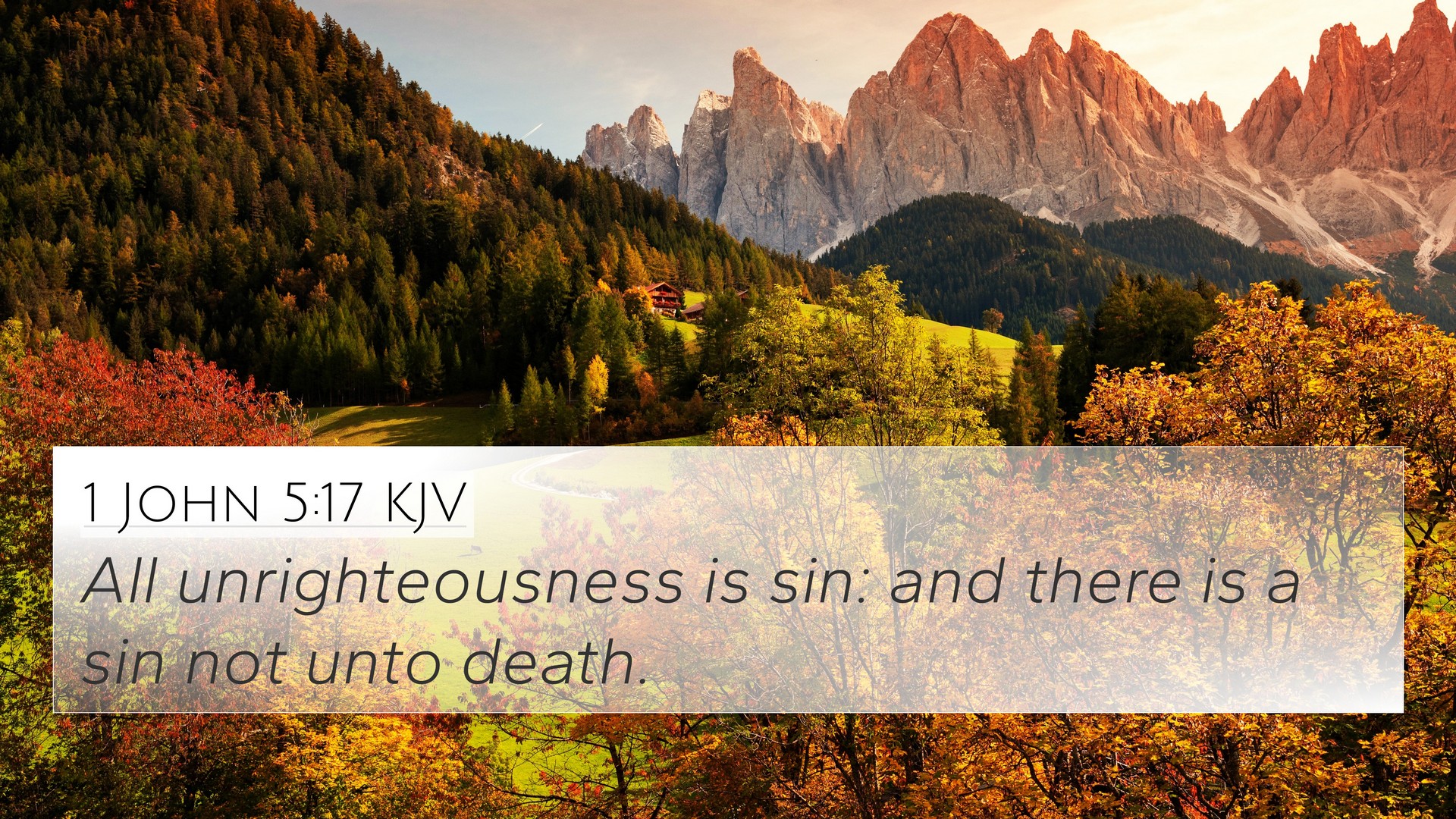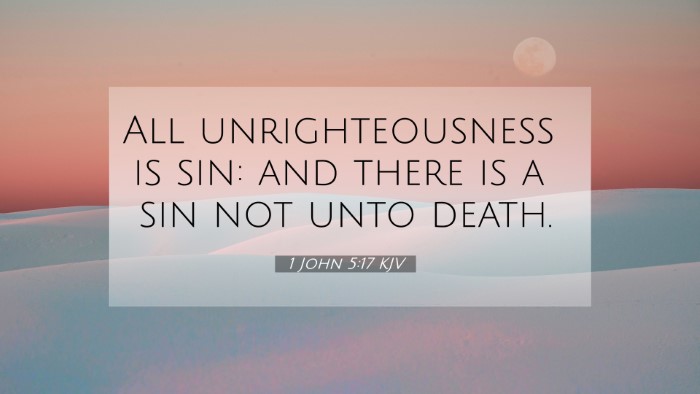Old Testament
Genesis Exodus Leviticus Numbers Deuteronomy Joshua Judges Ruth 1 Samuel 2 Samuel 1 Kings 2 Kings 1 Chronicles 2 Chronicles Ezra Nehemiah Esther Job Psalms Proverbs Ecclesiastes Song of Solomon Isaiah Jeremiah Lamentations Ezekiel Daniel Hosea Joel Amos Obadiah Jonah Micah Nahum Habakkuk Zephaniah Haggai Zechariah Malachi1 John 5:17 Similar Verses
1 John 5:17 Cross References
All unrighteousness is sin: and there is a sin not unto death.
Uncover the Rich Themes and Topics of This Bible Verse
Listed below are the Bible themes associated with 1 John 5:17. We invite you to explore each theme to gain deeper insights into the Scriptures.
1 John 5:17 Cross Reference Verses
This section features a detailed cross-reference designed to enrich your understanding of the Scriptures. Below, you will find carefully selected verses that echo the themes and teachings related to 1 John 5:17 KJV. Click on any image to explore detailed analyses of related Bible verses and uncover deeper theological insights.
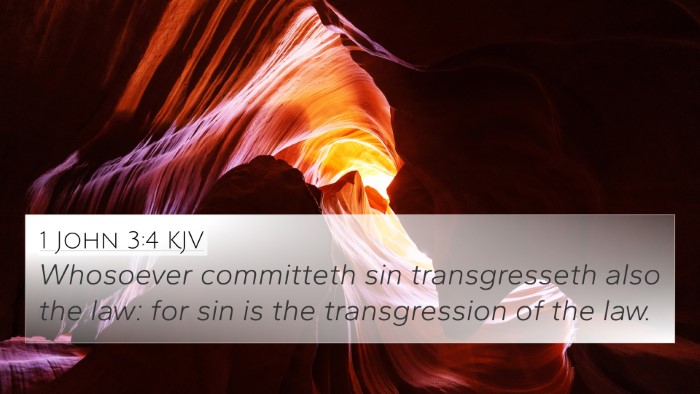
1 John 3:4 (KJV) »
Whosoever committeth sin transgresseth also the law: for sin is the transgression of the law.
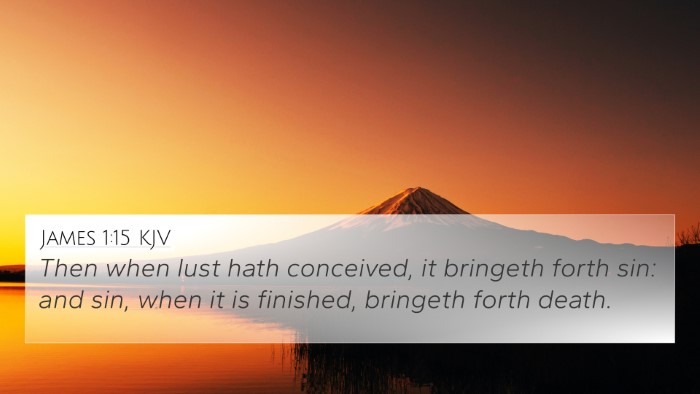
James 1:15 (KJV) »
Then when lust hath conceived, it bringeth forth sin: and sin, when it is finished, bringeth forth death.
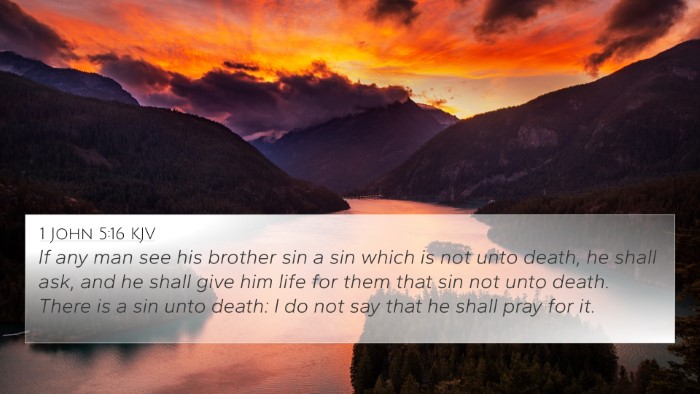
1 John 5:16 (KJV) »
If any man see his brother sin a sin which is not unto death, he shall ask, and he shall give him life for them that sin not unto death. There is a sin unto death: I do not say that he shall pray for it.

Ezekiel 18:26 (KJV) »
When a righteous man turneth away from his righteousness, and committeth iniquity, and dieth in them; for his iniquity that he hath done shall he die.
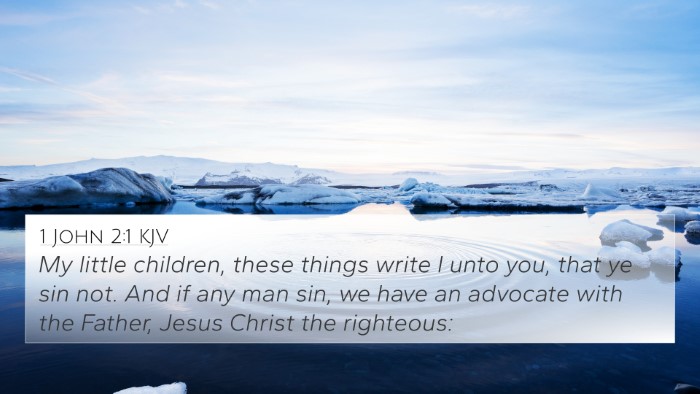
1 John 2:1 (KJV) »
My little children, these things write I unto you, that ye sin not. And if any man sin, we have an advocate with the Father, Jesus Christ the righteous:
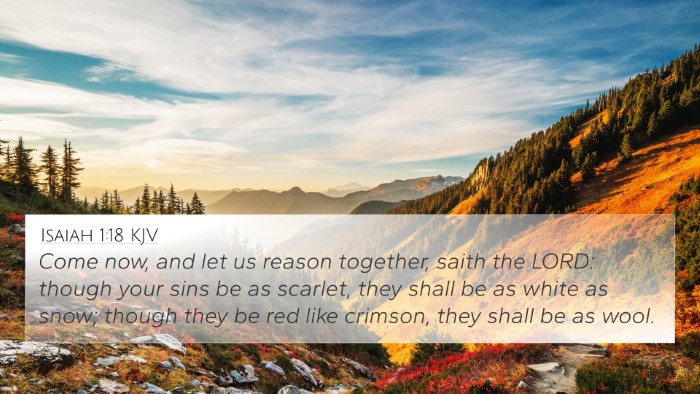
Isaiah 1:18 (KJV) »
Come now, and let us reason together, saith the LORD: though your sins be as scarlet, they shall be as white as snow; though they be red like crimson, they shall be as wool.

Deuteronomy 12:32 (KJV) »
What thing soever I command you, observe to do it: thou shalt not add thereto, nor diminish from it.
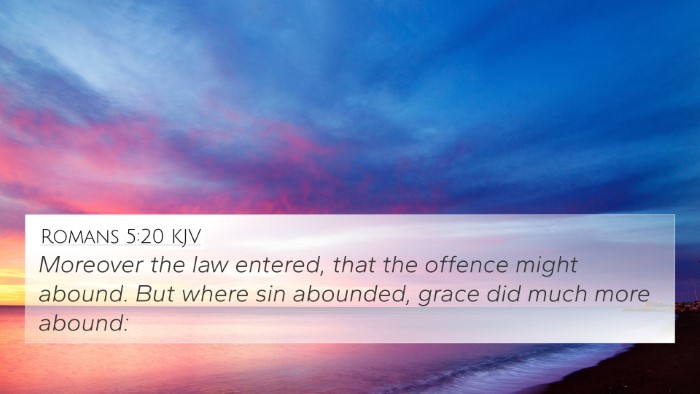
Romans 5:20 (KJV) »
Moreover the law entered, that the offence might abound. But where sin abounded, grace did much more abound:
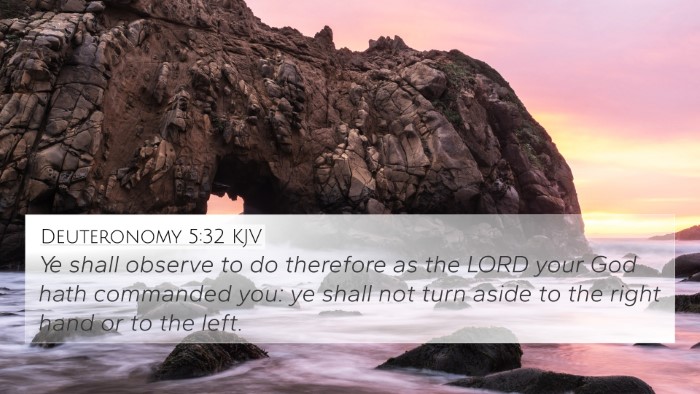
Deuteronomy 5:32 (KJV) »
Ye shall observe to do therefore as the LORD your God hath commanded you: ye shall not turn aside to the right hand or to the left.
1 John 5:17 Verse Analysis and Similar Verses
Understanding 1 John 5:17
1 John 5:17 states: "All unrighteousness is sin, and there is a sin not leading to death." This verse addresses the nature of sin and distinguishes between different types of sin, emphasizing the pervasive issue of unrighteousness inherent in humanity.
Insight from Public Domain Commentaries
Matthew Henry's Commentary
Matthew Henry emphasizes that this verse serves to remind believers of the serious nature of sin. He points out that "unrighteousness" encompasses all actions that fall short of God's glory. Sin, in its essence, separates humanity from God and leads to spiritual death. However, Henry notes the distinction made in this verse about certain sins not leading to death, suggesting that not all sin results in immediate judgment or spiritual separation from God.
Albert Barnes' Notes on the Bible
Albert Barnes comments that the phrase "there is a sin not leading to death" indicates a grace in God's economy. He interprets this as an acknowledgment of the different consequences that sin can have. Some sins may result in physical or spiritual death, while others may lead to correction or chastisement, allowing for repentance. Barnes suggests that understanding this can provide comfort to believers struggling with their flaws, knowing that there is room for forgiveness and restoration.
Adam Clarke's Commentary
Adam Clarke delves into the theological implications of sin mentioned in this verse. He points out that the apostle is not denying the reality of sin but rather categorizing it to showcase the mercy of God. Clarke highlights that the idea of sin leading to death involves both physical demise and eternal separation from God. He asserts that this verse serves as a clear warning to believers to avoid unrighteousness while encouraging them to seek reconciliation through God's grace.
Bible Cross-References
- Romans 3:23: "For all have sinned and fall short of the glory of God."
- 1 John 1:8: "If we say that we have no sin, we deceive ourselves, and the truth is not in us."
- James 4:17: "Therefore, to him who knows to do good and does not do it, to him it is sin."
- Matthew 12:31: "Therefore I say to you, every sin and blasphemy will be forgiven men, but the blasphemy against the Spirit will not be forgiven men."
- Hebrews 10:26: "For if we sin willfully after we have received the knowledge of the truth, there no longer remains a sacrifice for sins."
- Galatians 5:19-21: "Now the works of the flesh are evident, which are: adultery, fornication, uncleanness, lewdness..."
- John 5:14: "Afterward Jesus found him in the temple, and said to him, 'See, you have been made well. Sin no more, lest a worse thing come upon you.'
Key Themes and Their Applications
Understanding the complexities of sin is essential for believers seeking to live a righteous life. The verse stresses the importance of acknowledging sin in one's life while providing hope that not all sin inevitably leads to death.
The Nature of Unrighteousness
Unrighteousness, as defined by various commentaries, includes every act that deviates from God's laws. By recognizing that all have sinned, believers are reminded that grace is available.
The Role of Repentance
This verse invites believers to consider the importance of repentance and the transformative power of God's forgiveness. Through the grace highlighted in 1 John 5:17, individuals can seek restoration regardless of past mistakes.
Inter-Biblical Connections
The themes in 1 John 5:17 resonate throughout the scriptures, emphasizing sin’s nature and God’s grace across both the Old and New Testaments. The connections between verses deepen understanding, painting a holistic picture of divine justice and mercy.
Encouraging Personal Reflection
Each believer is encouraged to reflect on their spiritual state. Understanding the nuances of righteousness and unrighteousness can lead to a more profound relationship with God, prompting honest self-evaluation and a desire for growth in faith.
Conclusion
1 John 5:17 serves as a poignant reminder of the reality of sin while simultaneously conveying the hope offered through Christ. Through combined insights from public domain commentaries and the integration of cross-referenced scriptures, believers can explore the rich tapestry of biblical truth surrounding the concept of unrighteousness and grace.
